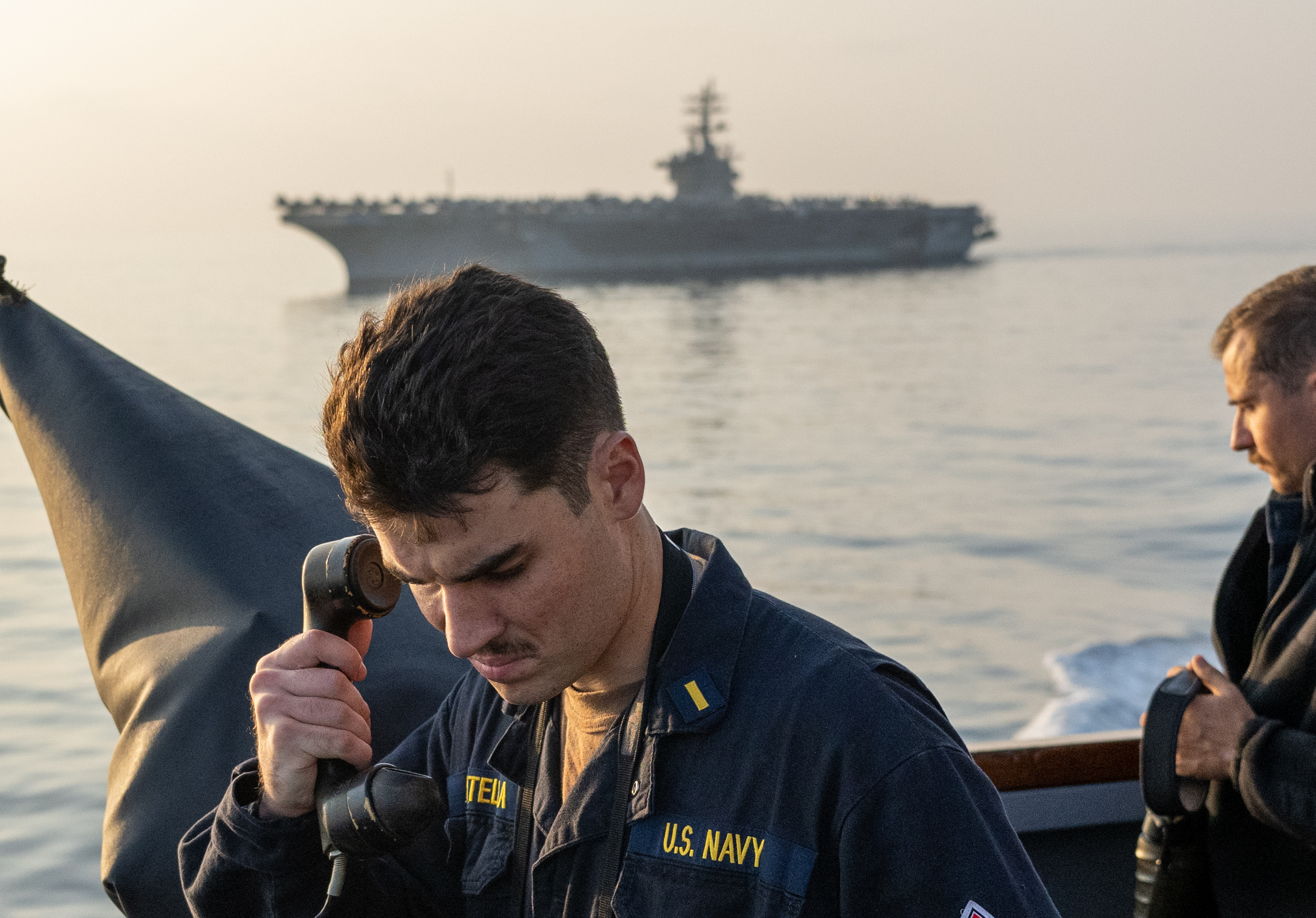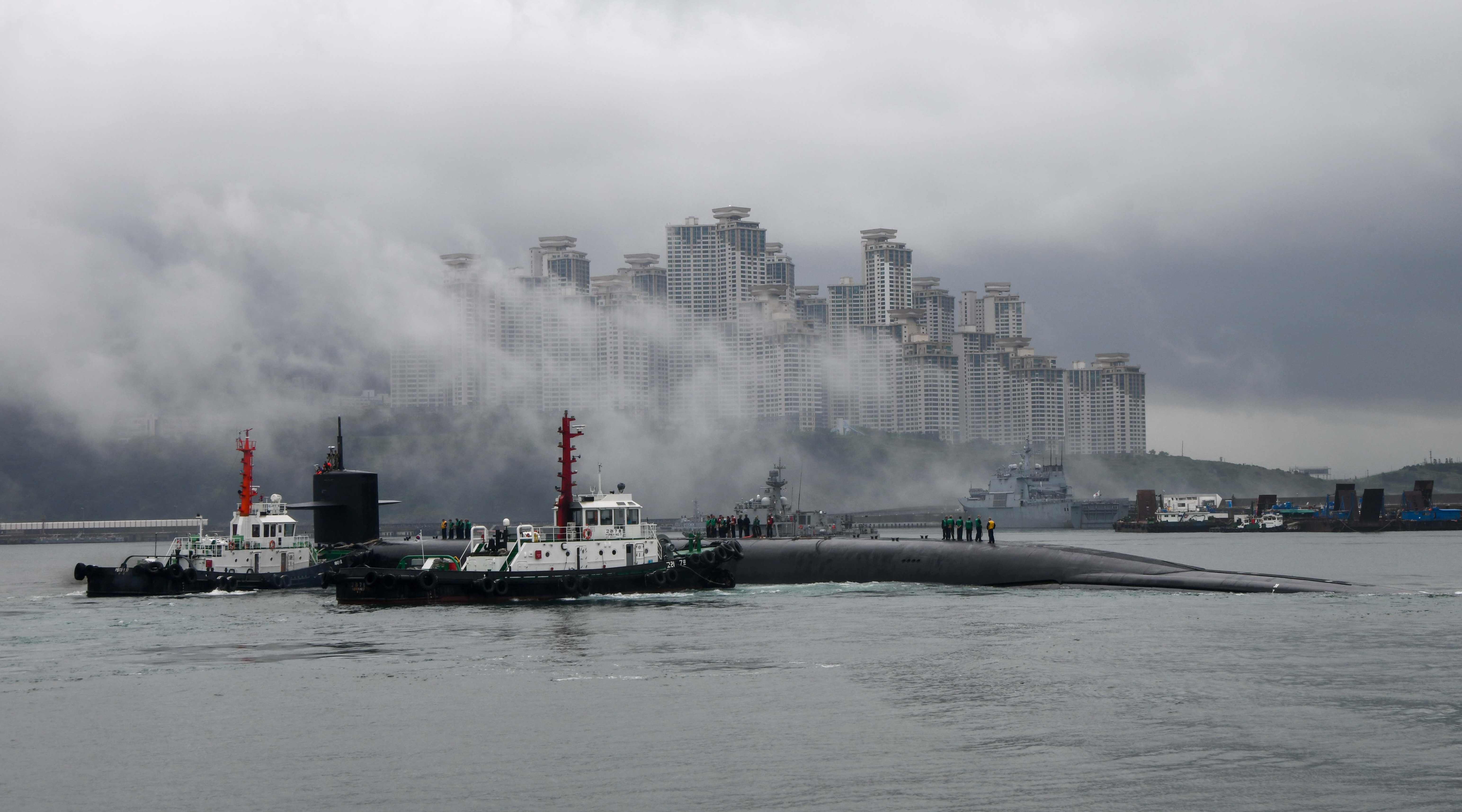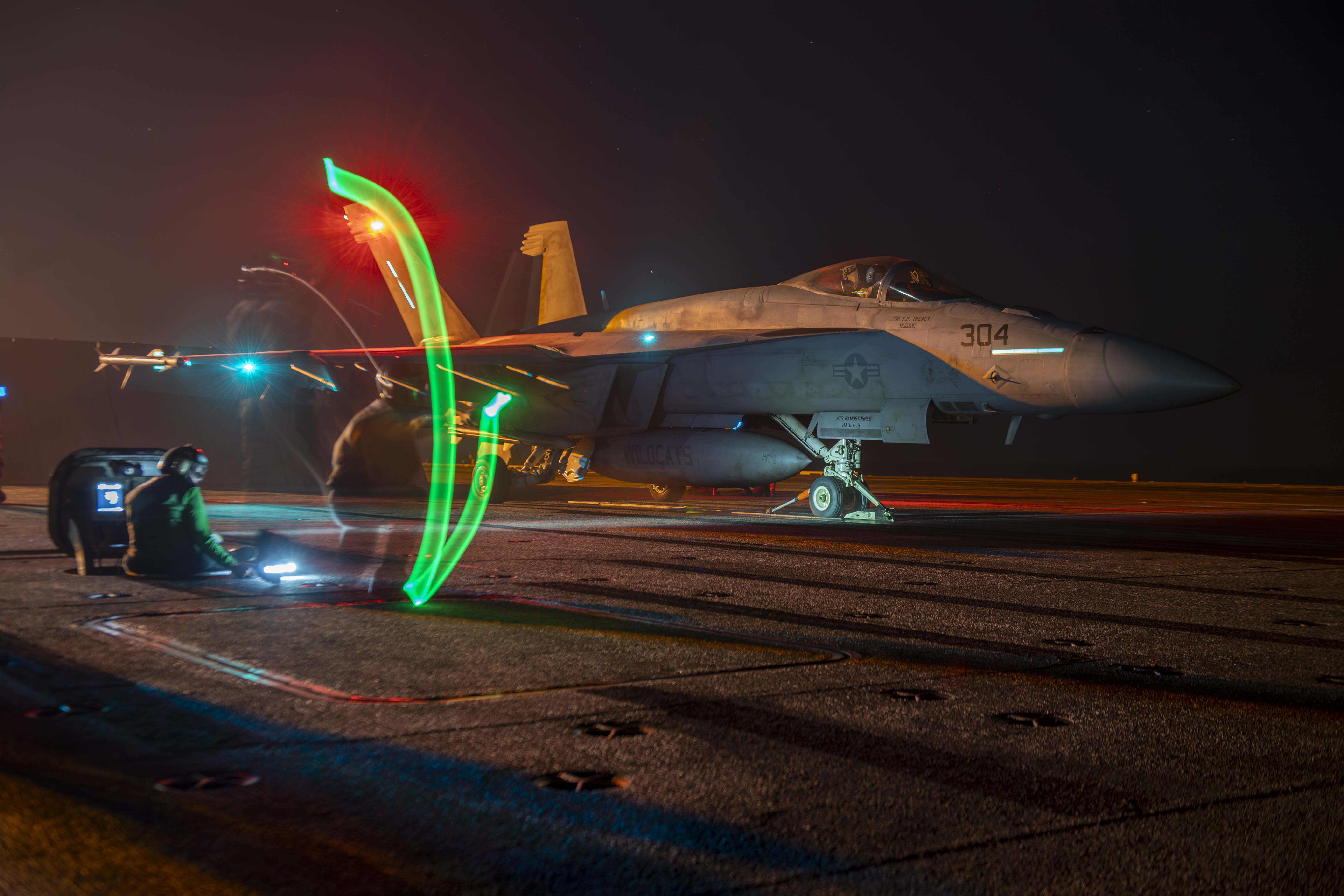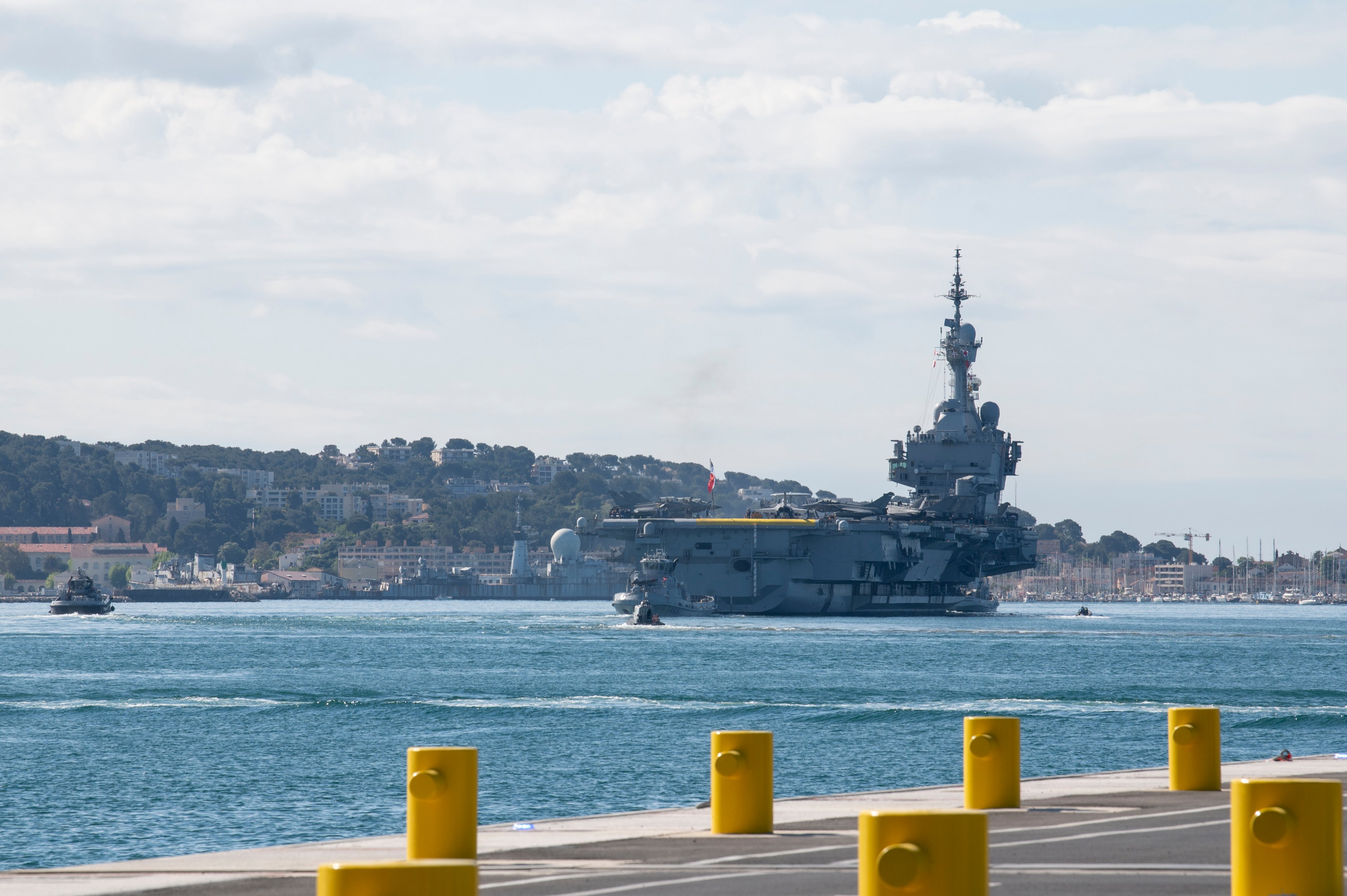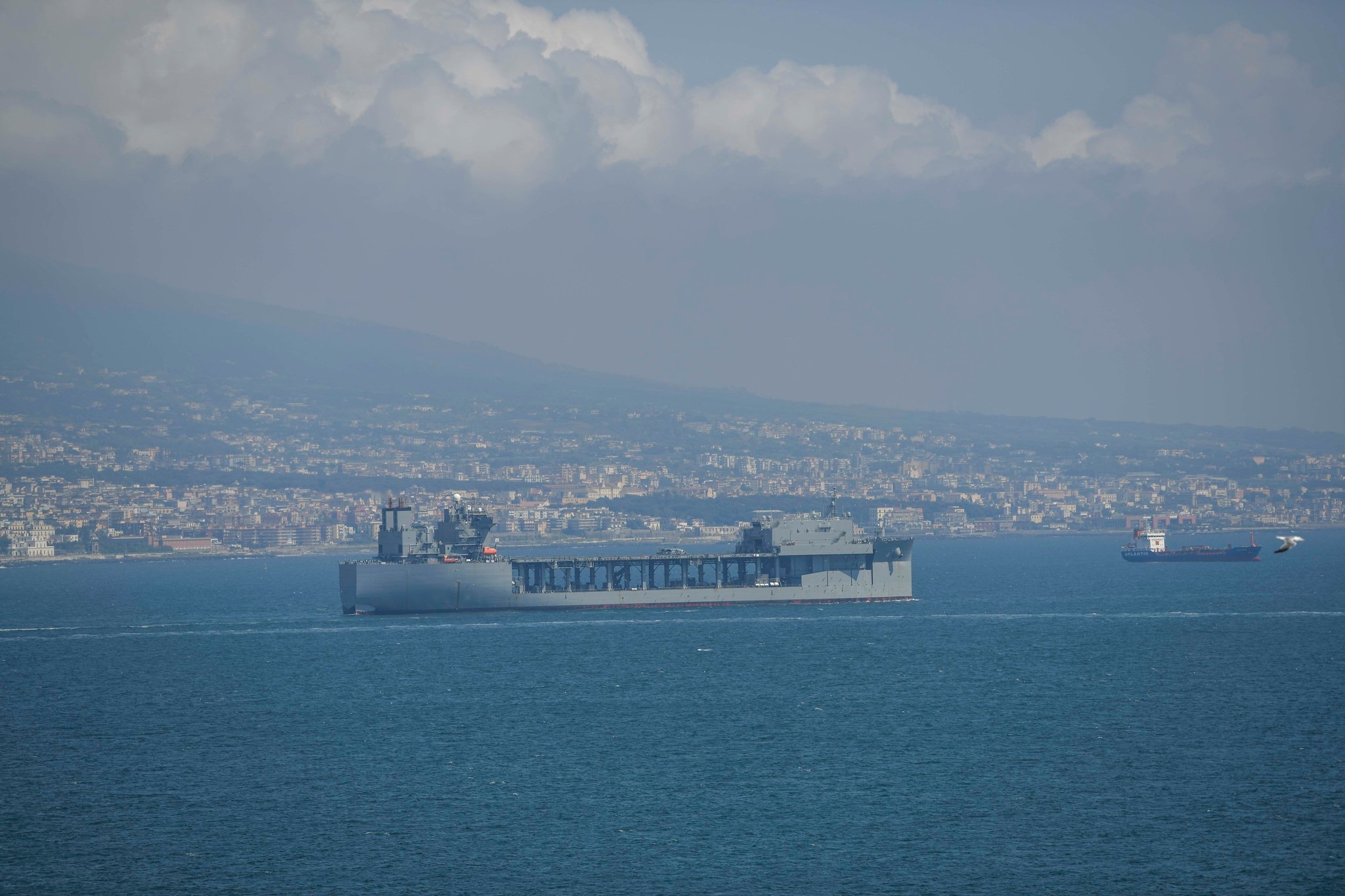
The Navy’s second expeditionary sea base is starting training operations with regional partners off Greece this week, even as the Eastern Mediterranean has been a place of tension between NATO allies in recent weeks.
USS Hershel “Woody” Williams (ESB-4) departed Norfolk, Va., on its maiden deployment on July 27; made its first port visit to Naples, Italy, on Aug. 13 for a routine logistics stop; and then arrived in Souda Bay, Greece, on Aug. 18.
The ship is meant to primarily support operations in U.S. Africa Command – operating in the Mediterranean Sea, Gulf of Guinea, Indian Ocean and more – but could also support U.S. European Command or U.S. Central Command if called upon, USNI News has previously reported.
“USS Hershel “Woody” Williams arrived in port Souda Bay, Greece, for a scheduled logistics stop, Aug. 18th and got underway this morning to conduct scheduled interoperability training with regional forces. These two events were previously scheduled and are not in a response to any current situation,” U.S. 6th Fleet spokesman Cmdr. Kyle Raines told USNI News.
“The ship will be an enduring presence in the AFRICOM area of responsibility. While in the region, the ship will support operations with allies and partners in the Mediterranean, and the waters around East, South and West Africa, to include the Gulf of Guinea. This ship is a key element in integration between U.S Navy and Marine Corps operations, especially Marine aviation and support to amphibious operations. Other operations and training the ship can conduct include support to special operations, command and control, and staging of equipment and other assets as directed,” Raines continued.
“By bringing a ship of this scale and capability to the region, we aim to improve maritime security, which provides opportunities and prosperity for all nations.”
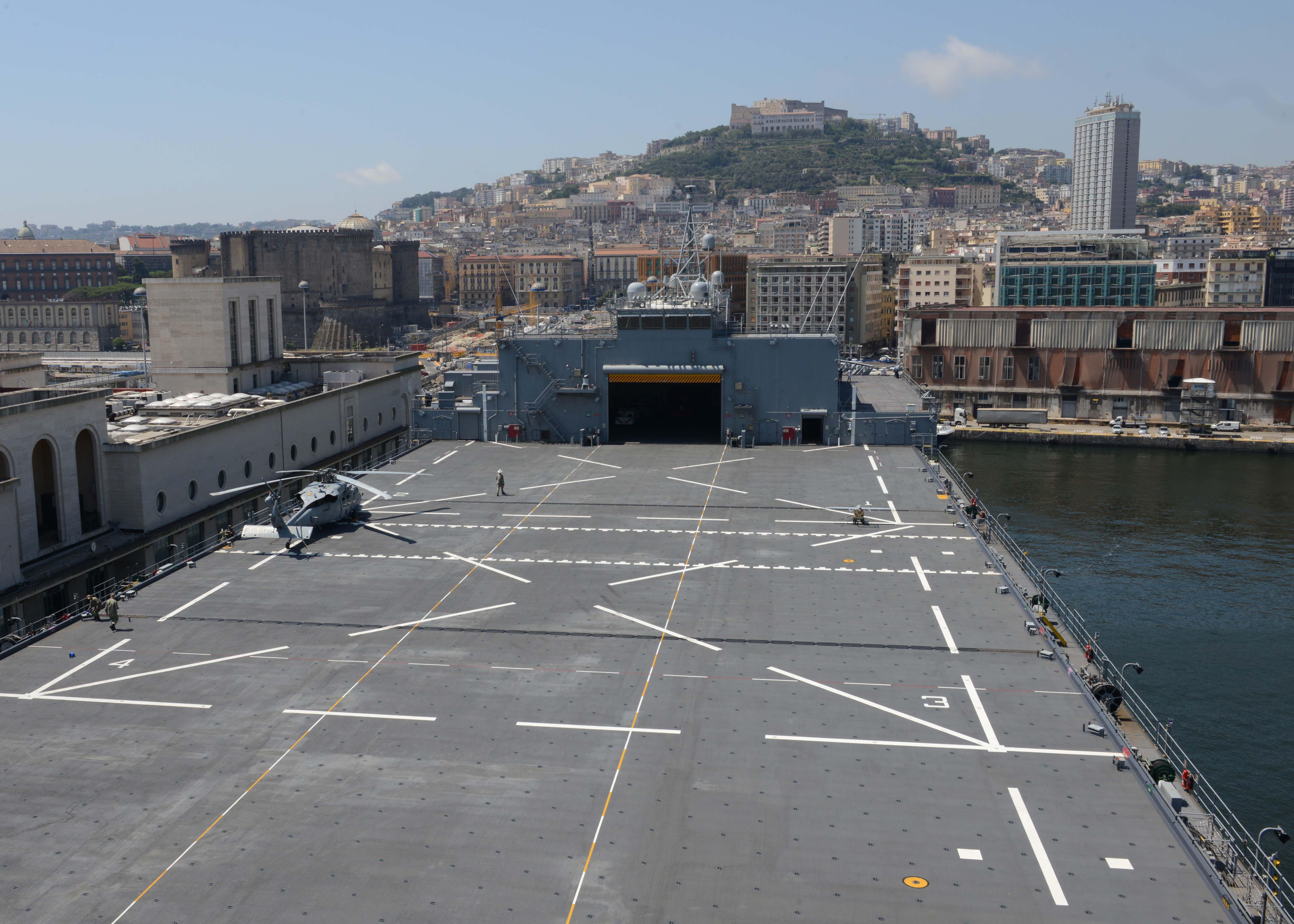
Whereas operations in the Eastern Mediterranean in recent years might typically focus on searching for Russian submarines or supporting ground operations in Syria or Iraq, Hershel Williams instead finds itself operating in waters where Turkey and Greece are in a standoff, after Turkey and France recently had a spat there as well.
Greece is trying to protect its territorial waters – and natural resources under the seabed – and vowed that “Greece will not accept a violation of its sovereignty and will do whatever is necessary to defend its sovereign rights,” a government spokesman said, according to The Associated Press. Turkey had been readying a survey ship to move into the area south of Greece, arguing that thousands of small islands in the Aegean and Ionian Seas shouldn’t extend Greece’s territorial claims so far and that newly discovered oil, gas and mineral deposits should be shared rather than belong exclusively to Greece.
“We want all natural resources in the eastern Mediterranean to be shared fairly,” a Turkish spokesman said, according to AP.
France has boosted its military presence in the area in support of Greece, after having its own disagreement with Turkey in the Eastern Mediterranean in June. A French warship tried to stop and inspect a cargo ship headed to Libya, with the French crew worried it was smuggling arms into Libya in violation of a United Nations embargo, according to a Reuters article. France says its frigate was harassed by three Turkish Navy ships accompanying the cargo ship. Turkey disputes this and says the French frigate was the aggressor.
Last week France announced it would send two Rafale fighter jets and frigate FS La Fayette (F710) to the Eastern Mediterranean as part of an increase in military presence to support its NATO ally, Greece – though Turkey, too, is a NATO ally.
Unlike France, which said its military forces were in the region to support Greece, the 6th Fleet statement said Hershel Williams‘ presence was unrelated to current events.
Turkey has increasingly found itself at odds with its NATO allies in recent years, including its very public fallout from the F-35 Lightning II Joint Strike Fighter program after it purchased a Russian air defense missile system. The Pentagon said it would not allow Turkey to operate both the Russian system and the F-35, and Turkey has since been kicked out of both the F-35 procurement effort as well as the industrial base, with the U.S. and its international partners seeking alternative sources of components that Turkey was meant to supply.


